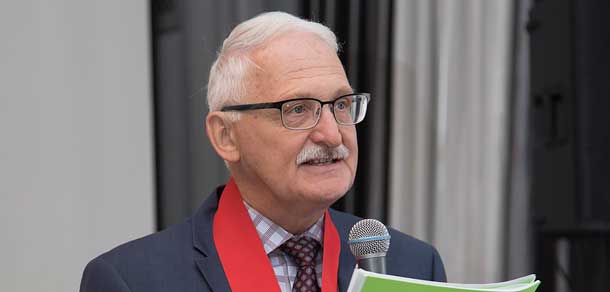At the global level, there are a handful of highly complex issues that concern each of us in one way or another. There are today a handful of highly complex global issues that are stubbornly resistant to solution. Think food, water and energy security; poverty, inequity and political instability; health care and infectious disease; environmental sustainability and climate change. While these are global problems, they most certainly have local contributions and consequences.
AAs early as 1973, the general theory of “wicked” problems was proposed as a way to describe a particular class of generally intractable social and cultural issues (Rittel, H. W., & Webber, M. M., “Dilemmas in a general theory of planning,” Policy Sciences, 4(2), 155-169. 1973). Wicked problems are those that are impossible or nearly impossible to resolve. The problems themselves defy precise definition and any solutions are without precedent. The problems run one into another, one a symptom of the other. Situations can be improved but never really solved. Proposed solutions cannot be proven right or wrong and there is no idealized and generally accepted end state.
Professional engineers and geoscientists – around the world and here at home in Saskatchewan and Canada – have critically necessary roles and responsibility to propose, critique, design and implement approaches to mitigating the negative impacts of wicked problems. In this issue of the <i>Edge</, you will be provoked to reflect on what you know and what you don’t know about climate change and to take action as appropriate in your work as a professional and in your life as a citizen.
In the last issue of the Edge, I summarized three areas of focus for APEGS and it is not difficult to link these priorities to our responsibilities relative to climate change and sustainability.
We can make it a priority to include climate change and adaptation within our plans and reporting for professional development. One feature of all wicked problems is their constantly changing nature and it is easy to get left behind in our own understanding and knowledge.
We can seek understanding and action in the spaces between disciplines, professions and cultures. Climate change and society’s responses to it are very multi-disciplinary. In Saskatchewan, we have a huge opportunity and responsibility to hear the different ways of knowing about climate and sustainability among indigenous and non-indigenous people and new immigrants. Women’s voices and men’s voices on climate change are each important as we seek to design a better world for everyone.
We can ensure that the public and other professions know what geoscientists and engineers bring to the table. Perhaps now more than ever there is a need for scientists – for engineers and geoscientists – to be engaged with policy-makers, to ensure that our knowledge and experiences are explicitly included in the debate and in the decisions. Public safety and well-being are enhanced when we help governments, policy-makers, clients and communities recognize impending climate change – patterns and consequences of change – and develop science-based approaches to mitigation and adaptation.
CORRECTION: Issue 168, May/June 2017, of The Professional Edge included a summary article by Martin Charlton Communications titled “The Science of War: Engineers and Geoscientists at Vimy Ridge”, pgs. 10-12. The editorial staff failed to note that the summary article was derived from the May 5, 2017 presentation of Prof. Don Gendzwill, P.Eng., P.Geo., the researcher and author of the track session titled “ Vimy Ridge: The Role of Science in a Canadian Victory” at the APEGS 87th Annual Meeting & Professional Development Conference in Regina. A photo of Prof. Gendzwill presenting his paper appeared on the cover of Issue 168 but no caption for the photo appeared in the magazine.
The editorial staff of The Professional Edge would like to apologize to Prof. Gendzwill and to the readership of The Professional Edge for these significant lapses in our normal journalistic standards. Appropriate instructional and disciplinary measures have been taken with the editorial staff members involved.
